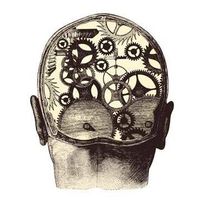Google’s AI Takes on Math Olympiad: A Silver Medal Achievement with Caveats
July 27, 2024, 12:07 am
In a world where numbers dance and equations sing, Google DeepMind has made waves with its latest AI models, AlphaProof and AlphaGeometry 2. These systems recently tackled problems from the International Mathematical Olympiad (IMO), a prestigious competition that has tested the sharpest young minds since 1959. The result? A score that mirrors a silver medal performance. But as with any shiny trophy, the details reveal a more complex picture.
The IMO is no ordinary math contest. It’s a battleground for elite pre-college mathematicians, where the toughest problems in algebra, combinatorics, geometry, and number theory are laid bare. Google claims its AI systems solved four out of six problems, earning 28 out of 42 points. This achievement is touted as a historic milestone for AI, suggesting that machines are inching closer to human-level mathematical reasoning.
AlphaProof, the brainchild of reinforcement learning, proves mathematical statements using a formal language called Lean. It’s like a student who learns by trial and error, generating and verifying millions of proofs. Meanwhile, AlphaGeometry 2, an upgraded version of its predecessor, is powered by a more robust Gemini-based language model. This duo represents a leap forward in AI’s ability to engage with complex mathematical concepts.
The crown jewel of this performance was a perfect score on the competition's hardest problem, a feat accomplished by only five human contestants. This achievement paints a picture of AI prowess, but the canvas is not without its flaws. The models took significantly longer to solve problems than their human counterparts. Some tasks consumed over 60 hours, while humans raced against the clock in two 4.5-hour sessions. If given the same time, it’s likely that human competitors would have outperformed the AI.
Moreover, the process of translating IMO problems into formal language was handled by humans. This step, known as “autoformalization,” raises questions about the AI’s autonomy. While the models excelled in mathematical reasoning, they relied on human intervention to understand the problems in the first place. This reliance highlights a crucial limitation: the AI is not yet a self-sufficient mathematician.
Sir Timothy Gowers, a prominent mathematician involved in evaluating the AI’s performance, offered a tempered view. He acknowledged the achievement but cautioned against overestimating the implications. The AI’s long processing times suggest it hasn’t yet “solved mathematics.” Gowers speculated that we might be a breakthrough or two away from AI rendering mathematicians obsolete. For now, the systems could serve as valuable research tools, assisting mathematicians with less complex problems.
The implications of this development are profound. If AI can assist in solving a range of mathematical questions, it could revolutionize research. Imagine a world where mathematicians have a powerful ally, one that can sift through vast amounts of data and provide insights in a fraction of the time. This could free human minds to tackle more complex, open-ended problems.
Yet, the excitement surrounding this achievement must be tempered with caution. The AI’s performance, while impressive, is not a definitive sign of a new era in mathematics. It’s a glimpse into the potential of AI, but it also underscores the current limitations. The journey from a silver medal to gold is fraught with challenges.
As we stand on the precipice of this new frontier, the question remains: how far can AI go in the realm of mathematics? The path ahead is uncertain. While the technology is advancing, the essence of mathematical creativity and intuition remains a uniquely human trait. AI may assist, but it cannot replace the spark of human ingenuity.
In conclusion, Google’s announcement of its AI models achieving a silver medal at the IMO is a significant milestone. It showcases the strides made in AI’s ability to engage with complex mathematical problems. However, the limitations highlighted by experts remind us that we are still in the early stages of this journey. The future of AI in mathematics is bright, but it is not without its shadows. As we explore this uncharted territory, we must remain vigilant, balancing optimism with realism. The dance between human intellect and artificial intelligence is just beginning, and the rhythm is still being defined.
The IMO is no ordinary math contest. It’s a battleground for elite pre-college mathematicians, where the toughest problems in algebra, combinatorics, geometry, and number theory are laid bare. Google claims its AI systems solved four out of six problems, earning 28 out of 42 points. This achievement is touted as a historic milestone for AI, suggesting that machines are inching closer to human-level mathematical reasoning.
AlphaProof, the brainchild of reinforcement learning, proves mathematical statements using a formal language called Lean. It’s like a student who learns by trial and error, generating and verifying millions of proofs. Meanwhile, AlphaGeometry 2, an upgraded version of its predecessor, is powered by a more robust Gemini-based language model. This duo represents a leap forward in AI’s ability to engage with complex mathematical concepts.
The crown jewel of this performance was a perfect score on the competition's hardest problem, a feat accomplished by only five human contestants. This achievement paints a picture of AI prowess, but the canvas is not without its flaws. The models took significantly longer to solve problems than their human counterparts. Some tasks consumed over 60 hours, while humans raced against the clock in two 4.5-hour sessions. If given the same time, it’s likely that human competitors would have outperformed the AI.
Moreover, the process of translating IMO problems into formal language was handled by humans. This step, known as “autoformalization,” raises questions about the AI’s autonomy. While the models excelled in mathematical reasoning, they relied on human intervention to understand the problems in the first place. This reliance highlights a crucial limitation: the AI is not yet a self-sufficient mathematician.
Sir Timothy Gowers, a prominent mathematician involved in evaluating the AI’s performance, offered a tempered view. He acknowledged the achievement but cautioned against overestimating the implications. The AI’s long processing times suggest it hasn’t yet “solved mathematics.” Gowers speculated that we might be a breakthrough or two away from AI rendering mathematicians obsolete. For now, the systems could serve as valuable research tools, assisting mathematicians with less complex problems.
The implications of this development are profound. If AI can assist in solving a range of mathematical questions, it could revolutionize research. Imagine a world where mathematicians have a powerful ally, one that can sift through vast amounts of data and provide insights in a fraction of the time. This could free human minds to tackle more complex, open-ended problems.
Yet, the excitement surrounding this achievement must be tempered with caution. The AI’s performance, while impressive, is not a definitive sign of a new era in mathematics. It’s a glimpse into the potential of AI, but it also underscores the current limitations. The journey from a silver medal to gold is fraught with challenges.
As we stand on the precipice of this new frontier, the question remains: how far can AI go in the realm of mathematics? The path ahead is uncertain. While the technology is advancing, the essence of mathematical creativity and intuition remains a uniquely human trait. AI may assist, but it cannot replace the spark of human ingenuity.
In conclusion, Google’s announcement of its AI models achieving a silver medal at the IMO is a significant milestone. It showcases the strides made in AI’s ability to engage with complex mathematical problems. However, the limitations highlighted by experts remind us that we are still in the early stages of this journey. The future of AI in mathematics is bright, but it is not without its shadows. As we explore this uncharted territory, we must remain vigilant, balancing optimism with realism. The dance between human intellect and artificial intelligence is just beginning, and the rhythm is still being defined.

